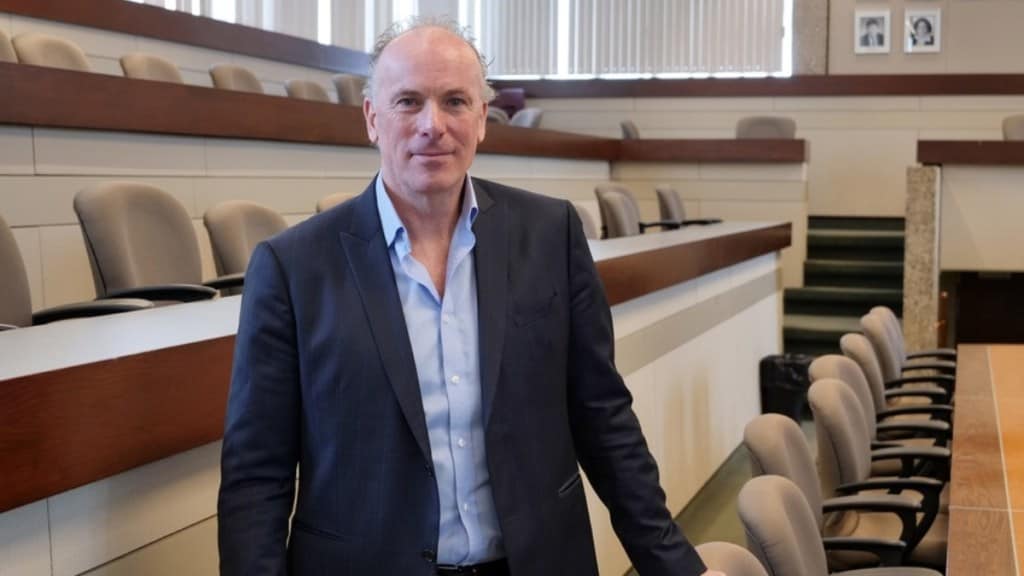With the National Education Policy 2020 (NEP) opening doors for international universities to set up shops in India, it does not come as a surprise that international universities are eyeing India more than ever now. Additionally, more scholarships have been initiated to also get students to study abroad. In a conversation with FE Education, David C Malloy, president, King’s University College, talks about its plans to increase the number of international students. (Edited Excerpts)
Could you give us an idea about the number of Indian students the college currently has? What about your plans to increase the numbers?
We currently have about 35-36 Indian students. Overall, our international student body is about 22%, which equates to about 800 students. In terms of growth, we’re looking to add 10-15 students per year. We have been connected to India for years, but I don’t think that we’ve been here as often as we should have been. I’m new to this position and I want to make an effort to visit India. The idea is to ensure that Indian students and parents understand who we are, and the kind of opportunities we bring. I think we’re going to see growth in that.
In terms of revenue, we earn from tuition fees, and international students account for 50%. What we need is to maintain a student body.
The high cost of education abroad remains one of the biggest challenges for Indian students. How do you plan to tackle that?
While about five to 10% of our courses are primarily available online, we’re an offline university, and that’s our strength. We take pride in the quality of our teaching and small classrooms. So, we will continue to be a face-to-face university. We are aware that tuition is expensive, and we’ve just started a new awards program targeted toward Indian students, where if a student wants to enrol in the Bachelor of Management and Organisational Sciences Program, or Organisational Studies Program, we’re offering them an award of $26,000 over a period of four years. This is in addition to the other awards that are available to them based on their academic performance. If a student wants to enrol in a discipline outside the management and organisational studies program, for example, economics, then we offer them an award worth $32,000. Adding to this, others are performance-based scholarships. So, that’s double what we’ve done in the past.
How have students’ preferences for courses evolved?
A lot of our Indian students have opted for management organisational studies. Besides, many students are interested in finance and accounting. Our psychology department has also managed to gain a level of interest and I’m looking forward to it. Additionally, economics is considered popular. We do have one program available right now in Decision Analytics, which I think is an interesting program which has just started. Currently, it’s a minor program, and we are planning towards adding it as a major. For example, a student could take a major in Economics rather than a minor in Decision Analytics. Nonetheless, the Decision Analytics course is interesting because it involves taking courses not only in Statistics but also in critical thinking, Philosophy, and other aspects of the decision-making process. It’s a multidisciplinary course.
As National Education Policy 2020 allows key changes such as the introduction of multidisciplinary courses besides international universities opening varsities in India through tie-ups, what has been your approach?
I think we’ve gone to three different cities and so far, we have had 20 conversations or meetings with different universities. This topic has been discussed a couple of times. With a couple of universities, we’re paying attention to this. We haven’t signed any memorandum of understanding (MoU) with any university yet but we plan to take this idea seriously, particularly with one university. I cannot mention it yet as we are still in conversation.
So, what kind of multidisciplinary course can we expect?
Just to give an idea, one of the conversations is around how we combine liberal arts, education and technology. So, we can either set up a department or a faculty of Liberal Arts and Technology, which is exactly what King University College would like to do. We see the importance of Liberal Arts not only in solving the world’s problems, which I do believe that it can but I think in India, as well as in Canada, UK, Australia, and everywhere around the world, technology has been a disrupter. Hence, the kind of jobs and skills which will be required to survive will change in the next two-three years. Through liberal arts, we can learn skills such as critical thinking, creative thinking, analytical thinking, and leadership skills — all of these are soft skills. These skills will help students around the world to be flexible and competitive in ever-changing jobs. So, the idea of the Liberal Arts and Technology department or faculty should be attractive. I think it fits in with the ethos of King’s University.
How do you prepare your students for jobs?
Our students can take part in internships. The other thing that we offer is distinct at King’s is what we call, ‘The Kings’ promise’. This is when a student joins, whether he or she is domestic or international, they can come in their first year and sign up for this program. Through their four years, they’re required to take different seminars and work to make their career ready. From resume writing, interview skills, and volunteerism, they’re assigned a mentor to help them understand what life after Kings essentially is. After four years, if they haven’t received or found a position or a job in their area, we will offer them up to one year of tuition for free. It’s also a promise to employers that if they hire a student from King’s, they know they’re hiring a top-notch student.

